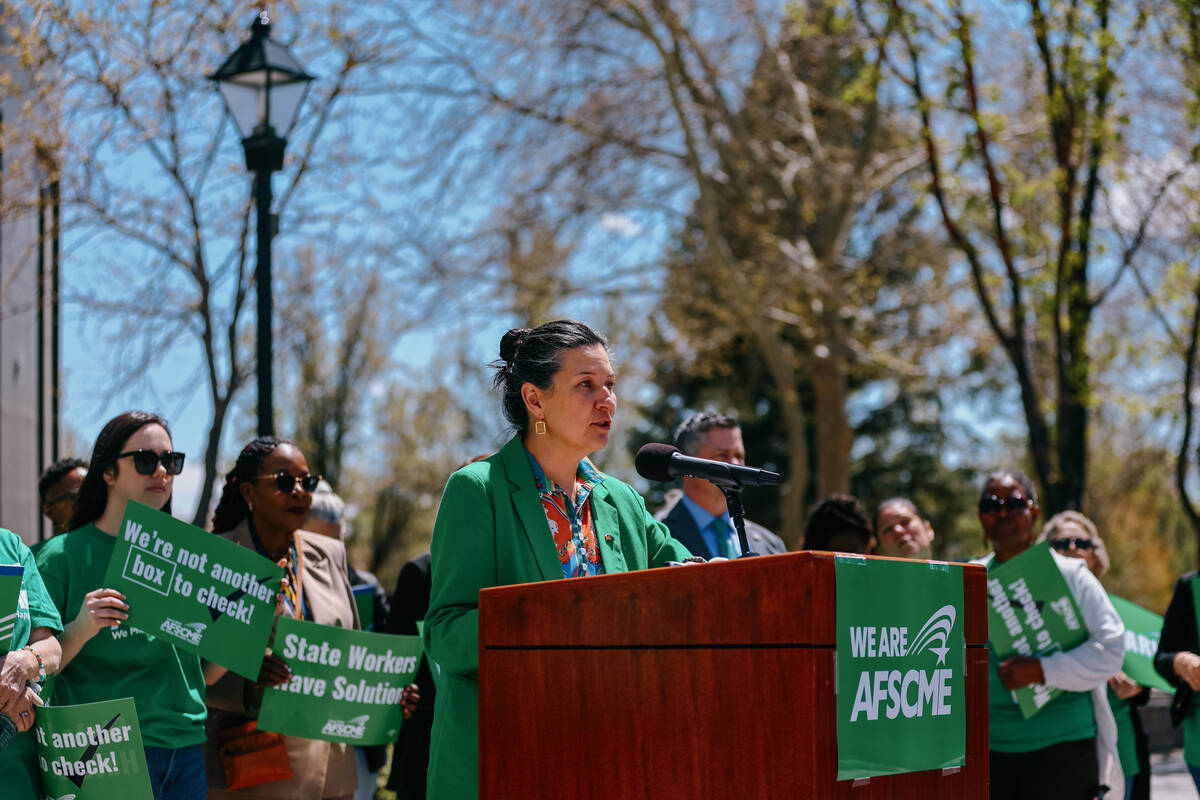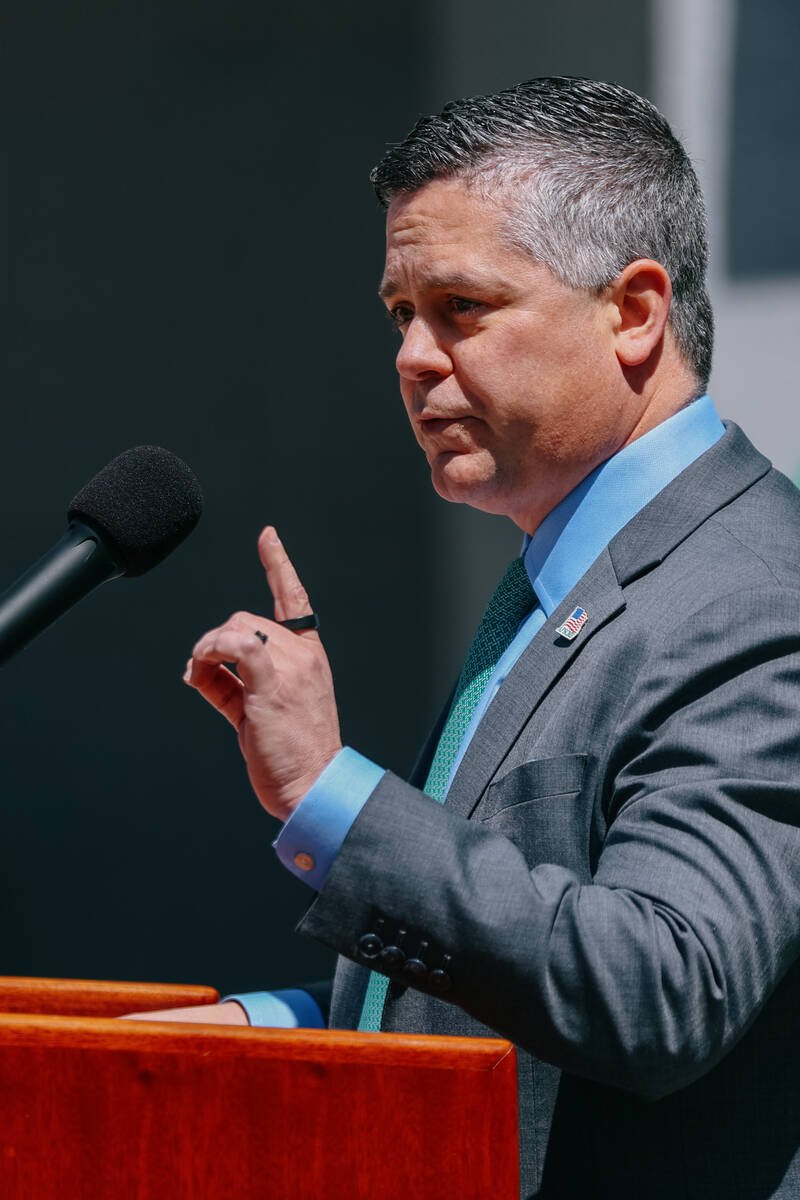Carson City lowers expectations for Nevada revenue projection report
CARSON CITY — Nevada lawmakers are anxiously awaiting a May 1 forecast of how much money the state will have to fund services and new programs for its next two-year budget cycle.
There is already a consensus that revenues will fall below predictions used to create the state budget. But just how far below is a question being raised in budget hearings, in hallway conversations and at news conferences in the days leading up to Thursday’s Economic Forum.
Assembly Minority Floor Leader Gregory Hafen, R-Pahrump, said expectations were “already bad” during a Monday meeting of the joint Assembly Ways and Means and Senate Finance committees.
“Heaven forbid the Economic Forum come back much worse than most of us are projecting it to be,” he said.
$12.4 billion question
The Economic Forum is a panel of experts who forecast the state’s general fund revenues, including the sales and use tax, gaming percentage fee, live entertainment tax, commerce tax, modified business tax and real property transfer tax. Its most recent forecast from December was used by Gov. Joe Lombardo’s staff to craft Lombardo’s proposed budget for the 2026-2027 biennium.
That forecast predicted the state could count on $12.4 billion in revenue during the next two-year budget cycle, about 3.4 percent more than it is expected to receive over the entire the 2024-2025 biennium.
The state’s economic outlook has changed since then, and expectations of lowered revenue are already playing out.
Alexander Marks, deputy executive director of field and communications for the Nevada State Education Association, said the education lobbying group can see the economy’s impact in the governor’s recommended per-pupil spending increase of only $2 in the 2026 fiscal year and $70 for the 2027 fiscal year.
“Why does it appear that way? I mean, I hate to just say vibes, but I mean, certainly the comments that are being made by some of them, the budget meetings,” Marks said. “The $2 per-pupil budget increase – it’s like, if we had the money, (Gov. Joe Lombardo would) be offering more.”
Uncertainty driving the conversation
The source of many of the concerns is far outside of lawmakers’ control, including trade tensions that have led to a softening of international travel and increased uncertainty about the impact of tariffs on the domestic economy.
“We know our economy is deeply reliant on tourism,” said Sen. Rochelle Nguyen, D-Las Vegas, at a Wednesday news conference in Carson City. “When trade wars disrupt the global economy, it directly impacts disposable income of tourists, both domestic and international.”
Efforts to pare back the federal government’s $1.3 trillion budget deficit could have an outsized impact on the 28 percent of the Silver State’s budget that comes from the U.S. taxpayers. Most of that money supports the Department of Health and Human Services, which manages the state- and federally-funded Medicaid program, which provides coverage to some 822,000 Nevadans, according to a report from the nonpartisan Kenny Guinn Center for Policy Priorities.
Marks said his group is advocating for changes suggested by the Commission on School Funding, including changes to the state’s property tax structure by resetting depreciation to capture more property taxes, as described in Assembly Joint Resolution 1, but it’s a long-term fix; that reform would require the approval of the legislature and governor two times before being put before voters in 2028.
Bracing for bad news
A Wednesday meeting gave some insight into what to expect from the next Economic Forum report.
Fiscal analysts gave the Technical Advisory Committee on Future State Revenues a preview on nonmajor revenue sources. The discussion on smaller taxes, including the liquor tax, gaming penalties and the “transportation network tax” on rideshares and cabs, suggested a slowing economy would affect the state’s revenue sources.
“All of the forecasters did reduce their forecasts to some degree because of expectations of softening of tourism and the year-to-date actuals not coming in as predicted to this point,” Michael Nakamoto, a fiscal analyst in the Legislative Counsel Bureau, said during the meeting.
Forecasters procted a $16 million drop in nonmajor revenue sources each budget year compared with the previous Economic Forum report. They also reported a $102 million reduction in general fund revenue in the first nine months of the 2025 fiscal year compared with the same period in 2024, which Nakamoto said was skewed by revenue collected when Las Vegas hosted the Super Bowl.
“If they are visitors, or would-be visitors to Nevada, they might be rethinking it for any number of reasons,” he said when talking about the nearly 11 percent decline in liquor tax revenue projected for the 2025 fiscal year. “Or if they live here, they might be forgoing buying alcohol because they need to buy something else.
“And that’s kind of one of the uncertainties, and it’s the great unknowns that we’re sitting and looking at, and it’s honestly one of the things that keeps me up at night as a forecaster.”
Contact McKenna Ross at mross@reviewjournal.com. Follow @mckenna_ross_ on X.





















